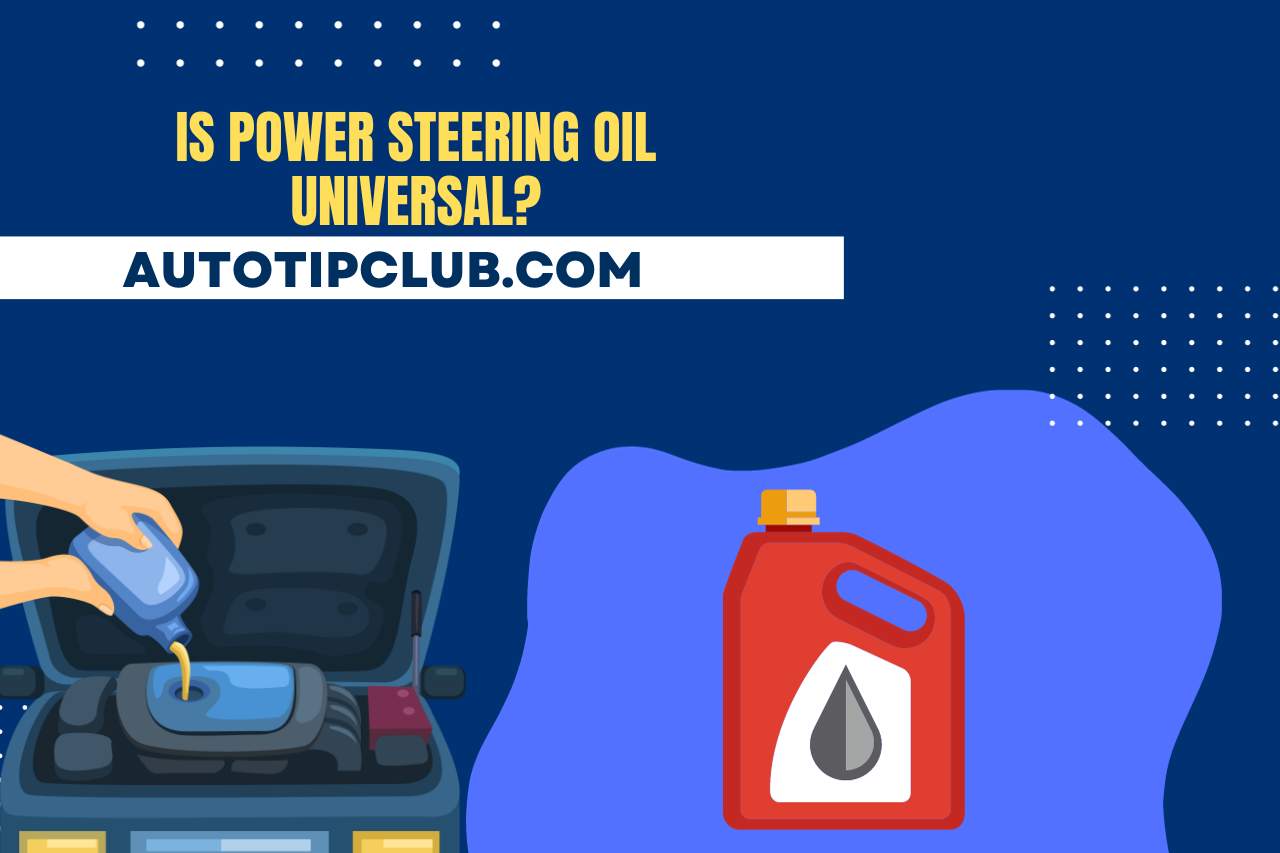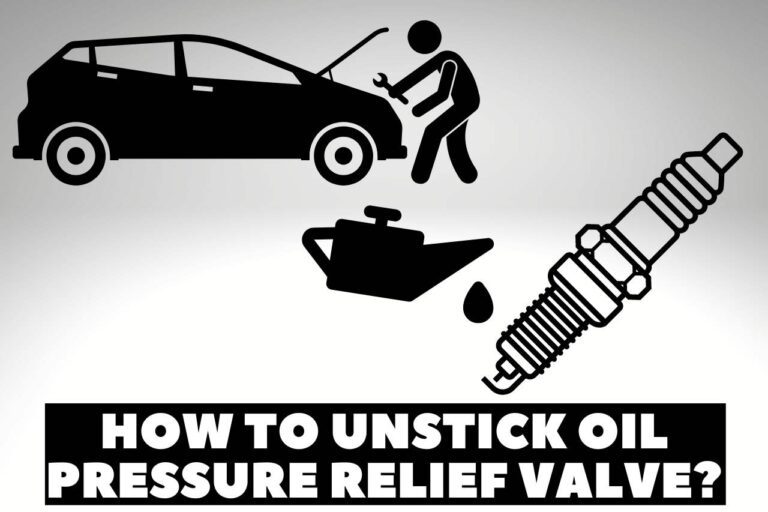Is Power Steering Oil Universal? A Comprehensive Guide
With myriad brands and types flooding the market, it’s essential to decipher the intricacies of power steering fluids. It would be much easier if it is universal, isn’t it? So, is power steering fluid universal?
When you go through this discussion, you’ll discover the importance of matching the right fluid to your vehicle, the potential consequences of missteps, and whether the brand truly makes a difference.
Let’s steer you through the maze of information so you will be able to ensure your vehicle gets the care it deserves!
Is Power Steering Oil Universal?
No, power steering oil is not universal. They cannot be universally interchangeable across all vehicle types.
Why isn’t power steering oil universal? These are the major reasons.
- Vehicle Specificity: Manufacturers design power steering fluids tailored to the unique needs of their vehicles. Thus, what works for one model might not be suitable for another.
- Different Formulations: There are various types of power steering fluids, such as mineral-based, synthetic, and those with specific additive packages. Each formulation offers distinct properties and benefits.
Read our article on “What is Power Steering Fluid Made Of” for a better idea.
In case you neglect choosing a unique product, you will end up with different bad consequences. Especially, the steering might feel harder or unresponsive. Moreover, the wrong fluid can corrode seals or cause wear on steering components. In addition, incorrect fluids can lead to whining or groaning noises from the power steering pump.
Therefore, it’s imperative to refer to the vehicle’s owner’s manual. The manual provides clear specifications about the type of power steering fluid to use.
While there are some so-called “universal” power steering fluids available in the market that claim compatibility with various vehicle types, it’s always best to use the specific fluid recommended by the vehicle manufacturer.
What Kind of Power Steering Fluid Does My Car Need?
To determine the kind of power steering fluid your car needs, you should always consult the vehicle’s owner’s manual.
Consider these things when you choose a power steering fluid for your vehicle.
Manufacturer Specifications
Manufacturers specifically outline the ideal fluid type for each vehicle model, ensuring optimal performance and longevity.
Fluid Types
There are a variety of formulations available:
- Mineral-based: This is the traditional type, often suitable for older vehicles.
- Synthetic: These types offer better temperature resistance, making them ideal for modern cars.
Brand Variations
Even within the same type, different brands might have varying additive packages. Some might focus on anti-wear properties, while others might prioritize temperature stability. Thus, you need to check the brand specifications before making the purchase.
Still, there are Power Steering Fluids Mentioned as “Universal.” What Are They?
Yes, there are some power steering fluids labeled as “universal.” However, using them should be approached with caution. While they might be compatible with many models, it’s not a guarantee they’ll match the specific needs of every vehicle.
These fluids are designed to be compatible with a wide range of power steering systems and vehicle makes and models. They are formulated to meet the requirements of various power steering systems, including those that require traditional power steering fluid, synthetic fluid, or ATF.
In summary, the right power steering fluid is vital for your car’s steering efficiency. Always prioritize the manufacturer’s recommendation to ensure the best compatibility and performance.
What Makes Power Steering Fluid Considered “Universal”?
The universal claim of power steering fluid often relates to its formulation and compatibility with various power steering systems. Here’s a closer look at the ingredients and how brands claim universality:
Most universal power steering fluids use a base oil that is compatible with a wide range of materials commonly found in power steering systems, such as rubber seals, hoses, and metal components. This ensures that the fluid will not cause damage or deterioration to these components.
In addition, universal power steering fluids contain additives that provide properties such as corrosion protection, oxidation stability, and wear protection. These additives are formulated to meet the requirements of various power steering systems and vehicle manufacturers.
The viscosity of universal power steering fluid is carefully selected to ensure proper lubrication and hydraulic performance in a variety of operating conditions, including temperature extremes.
Brands often claim universality based on extensive testing and compliance with industry standards. They may highlight compatibility with a wide range of vehicle makes and models, including those with different power steering system designs and requirements.
Also, some brands may claim universality based on recommendations from vehicle manufacturers or industry associations. They may state that their fluid meets or exceeds the specifications of these recommendations.
Brands may also highlight the performance benefits of their universal power steering fluid, such as improved steering feel, reduced noise, vibration, and harshness (NVH), and extended component life.
What Happens If you Put the Wrong Power Steering Fluid in your Car?
If you put the wrong power steering fluid in your car, it can lead to reduced performance, potential damage, and increased maintenance costs.
It is worth knowing the full list of bad consequences. So you will be encouraged to use the correct one!
Steering Performance
The wrong fluid may not have the right viscosity or additives. This can result in harder steering or a sluggish response, especially during temperature extremes.
System Damage
Incorrect fluids might not have the necessary corrosion inhibitors. As a result, there will be rust or degradation of metal components. Certain power steering fluids can deteriorate rubber seals and hoses, causing leaks or system failures.
Noisy Operations
Using an incompatible fluid might cause the power steering pump to make whining or groaning noises, indicating strain or inefficiency.
Premature Wear
The incorrect fluid might not provide adequate lubrication, resulting in increased wear and tear on the steering components.
Potential Overheating
Unsuitable fluids might not handle heat well, leading to potential overheating of the power steering system.
What Factors Should Be Considered When Determining if a Universal Power Steering Fluid is Suitable for a Particular Vehicle?
First, check the vehicle’s manual to see if it recommends a specific type of power steering fluid. Next, consider the age and condition of the power steering system. Older systems may require a specific type of fluid or may benefit from a fluid with additional additives.
Additionally, consider the climate and driving conditions in which the vehicle operates. Some fluids are better suited for extreme temperatures or heavy-duty use.
Finally, consult with a professional mechanic or the fluid manufacturer to ensure compatibility with the vehicle’s power steering system and components.
Does Power Steering Fluid’s Brand Matter?
Yes, the brand of power steering fluid matters because the brand specification can make a difference in the performance and longevity of your vehicle’s steering system.
Established brands tend to maintain strict quality control, ensuring their products consistently meet or exceed industry standards.
Different brands offer varying additive compositions. So, some might prioritize anti-wear properties; on the other hand, others focus on temperature stability or anti-foaming characteristics.
While many brands claim universal compatibility, not all fluids will be ideal for every vehicle type. Leading car manufacturers often recommend specific brands or formulations based on rigorous testing.
It is not a surprise that cheaper brands might save money in the short term but could lead to higher maintenance costs in the future due to potential system damage or reduced fluid lifespan.



My name is Robot McCullum, and I’m an Automotive Engineer with 20+ years of experience in the automotive field. I’ll give you step-by-step instructions for recognizing and fixing complicated technical problems in an uncomplicated manner. www.AutoTipClub.com, is your best resource for in-depth tutorials, insightful tips, and practical advice designed and developed either for seasoned vehicle collectors or daily drivers.




![How to Reset Oil Life on Chevy Malibu? [All About Chevy Malibu]](https://autotipclub.com/wp-content/uploads/2023/03/what-kind-of-oil-does-a-chevy-malibu-take-1-768x512.jpg)

![Does Windshield Wiper Fluid Expire? [Reasons Explained]](https://autotipclub.com/wp-content/uploads/2022/12/does-windshield-wiper-fluid-expire-768x512.jpg)
